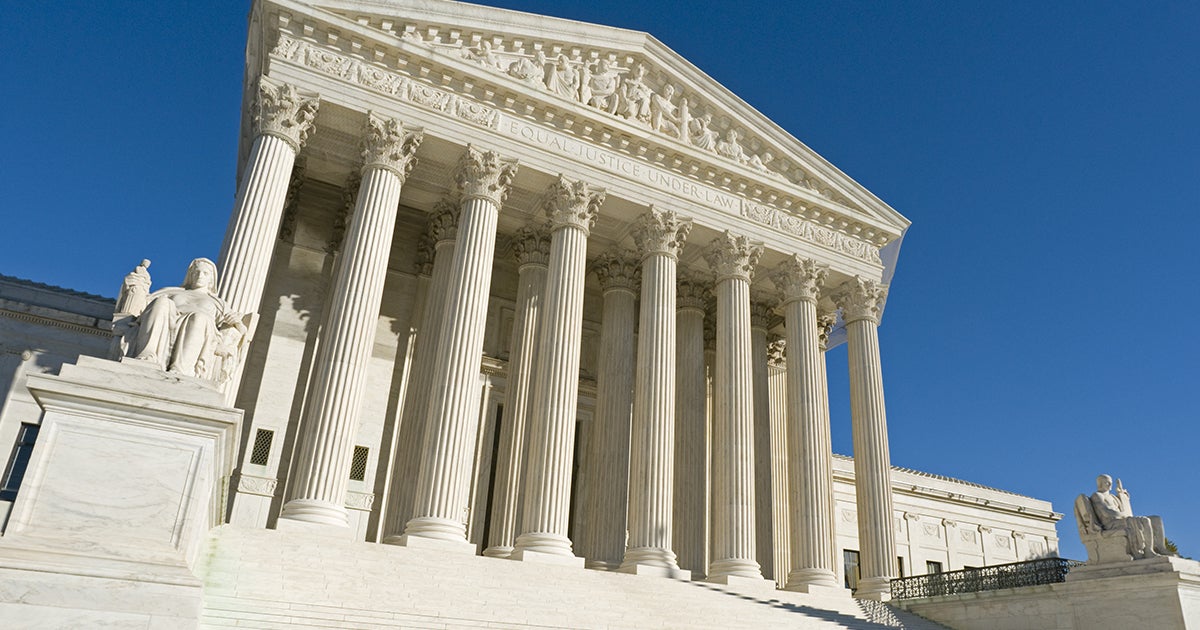
by Jorge Gomez • 4 min read
The U.S. Supreme Court released several opinions and an order list this week. This includes a few cases that will impact religious freedom.
The Court ruled on Federal Bureau of Investigation v. Fikre, a case involving a Muslim man who challenged his placement on the government “No Fly List,” the database containing information of known or suspected terrorists. The man claimed that the government had placed him on the “No Fly List” for constitutionally impermissible reasons.
The government removed his name from the “No Fly List” and then sought to have the Court find the claim moot, which would allow the government to avoid any negative consequences for its potentially unconstitutional act.
In a unanimous ruling on Tuesday, the Supreme Court ruled against the federal government, meaning the case may proceed in the lower courts.
The ruling has a broader impact that may help defend religious liberty. In many of First Liberty’s cases, the government has stopped illegal actions against religious Americans once a challenge is filed.
For example, First Liberty represented Navy SEALs who were treated harshly for requesting a religious accommodation to the COVID-19 vaccine mandate. First Liberty filed a case in federal court, asking the court to rule that the government’s actions were unconstitutional.
Rather than go through the litigation process, the government decided to simply end the vaccine mandate. Then, it tried to get the case thrown out as moot, which would allow it to evade responsibility for those unlawful actions. If a case is declared moot, there is nothing to stop the government from resuming discriminatory actions after the case ends.
Months ago, we filed a friend-of-the-court brief at the nation’s highest court on behalf of the Sikh Coalition, the country’s largest community-based civil rights organization working to protect Sikh Americans. Their mission is to help Sikhs and other religious minorities freely practice their faith without bias and discrimination.
Our brief argued the government should be held accountable when it tramples on American’s constitutional rights, including religious freedom. We also explained to the Supreme Court that the government must show it won’t carry out discrimination in the future.
The Court’s decision in FBI v. Fikre is a win for our amicus clients, the Sikh Coalition as well as our Navy SEAL clients, and a positive development for religious freedom in general.
Read More:
Bloomberg Law: FBI Must Face Suit Over ‘No-Fly List,’ Supreme Court Says
SCOTUSBlog: Supreme Court rules No Fly List dispute can go forward
Supreme Court Declines to Hear Case Involving Parental Rights & Religious Liberty
The Supreme Court declined to hear M.C. v. Indiana Department of Child Services, a case that highlights parental rights and religious freedom rights.
In that case, the state of Indiana removed a child from his mom’s custody because the mother’s religious beliefs require her to raise their child in accordance with his biological sex. The Indiana Court of Appeals upheld the child’s removal from the home, even though the court approved the mom’s fitness for raising her child.
First Liberty filed a friend-of-the-court brief in that case back in December, asking the justices to hear the case.
The Supreme Court’s denial of this case this week sadly means the state court’s decision stands.
“No other loving parents should have to endure what we did,” one of the parents said in a statement after the Supreme Court’s announcement. “The pain of having our son taken from our home and kept from our care because of our beliefs will stay with us forever. We can’t change the past, but we will continue to fight for a future where parents of faith can raise their children without fear of state officials knocking on their doors and taking their children.”
The end of the Supreme Court’s term is quickly approaching. It’ll wrap up its business by the end of June. There are still other cases being considered this term that could impact religious freedom. We’ll keep you updated on the Court’s actions and rulings as they are released.
Read More:
The Christian Post: Supreme Court allows removal of trans-identified child from Catholic parents’ home to stand